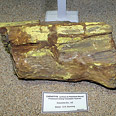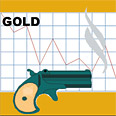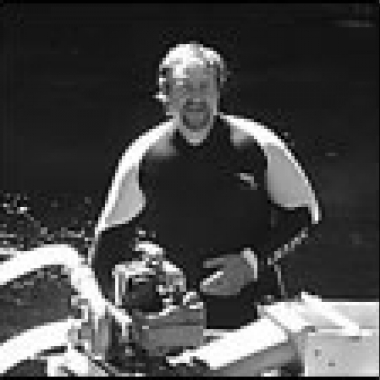All Articles
Oregon Requires Permit for Hand Sluicing
May 2010 by Chris Ralph
Recently, Oregon prospectors getting an early start to the 2010 gold season doing a little hand sluicing in a stream were startled when Department of Fish and Wildlife officers approached them and informed them that if they did not remove their sluice box immediately they would receive a large and expensive citation. The prospectors complied but were surprised to learn that there was a problem with simple hands sluices in Oregon. Similar hand sluices have been used in the streams of the state without a problem and without a permit since before Oregon was a part of the United States. The Oregon Department of Environmental Quality had provided virtually no notice of any change of regulations to prospectors and miners or any of the other affected parties, so prospectors were caught completely off guard. Inquiries were sent in a number of directions trying to find out what, if any, rule had changed.Further investigation revealed the state of Oregon had decided to designate sluice boxes as a point water pollution source under the federal Clean Water Act. This permitting program was originally created years ago to regulate large sources of water pollution such as big industrial facilities or publicly operated sewer treatment plants—operators creating a significant amount of water pollution. Unfortunately, the rules are written in a vague manner and allow states to designate any operator as a source no matter how small it is if the state only believes the operator has potential to cause a water pollution problem.
All other states in the US interpret hand operation of sluices or gold pans as an insignificant operation comparable to children playing in the river or digging holes in the dirt. Oregon’s new decision that hand-fed sluice boxes operated by individuals on a very small scale would constitute an important point source of water pollution is unique and extremely difficult to understand given the facts of such an operation. Part of the reason this decision appears so strange is because Oregon has a general permit for dredge operations, and a dredge is merely a sluice box with a motorized suction intake. Somehow, a non-motorized sluice box was considered significantly different and potentially worse than the motorized dredge sluice box.
With that extreme interpretation, it followed that anyone who wished to use a small hand-fed sluice box in an Oregon stream would be required to apply for a full National Pollutant Discharge Emission Source (NPDES) permit. The cost of applying for such a permit is $10,981. The fee is based on a charge to submit an application of $9,445 and then a fee of $1,536 for an annual permit that is in addition to the application fee. The permit would be good only for one location, and to move the hand sluice to a second location would cost an additional $10,981. This ridiculous permitting process and fee for all intents and purposes creates a ban on hand-operated sluices in the state of Oregon.
To add to the confusion, prospectors may run a powered sluice such as a highbanker away from the stream so long as none of the water run through the sluice is allowed to return to the stream (i.e. the prospector would be operating by recirculating water out of a retainment pond of some sort). This type of operation still requires an NPDES permit from the state of Oregon, but the fees for this permit are zero. The prospector must still complete the form, submit the application and obtain a permit even though there are no fees. The permit for this type of operation is designated the WCPF600 and allows processing of up to 1,500 yd³ per year, an amount far more than any individual prospector would move in a decade.
The outcry over the functional banning of small-scale hand sluices in Oregon streams has led to some meetings with the Oregon Department of Fish and Wildlife, the Department of State Lands and the Oregon Department of Environmental Quality. On April 2, 2010, retired EPA scientist Joe Greene, who is of the professional opinion that suction gold dredging is insignificant when it comes to possible environmental harm, gave a PowerPoint presentation relating to gold suction dredge turbidity in Oregon streams. Oregon is in the process of revising its 700-PM permits for suction dredging. Oregon DEQ staff members James Billings and Annette Liebe listened to miners request that small-scale, hand-operated equipment be exempt from NPDES permitting requirements because of their insignificant impacts. Those comments were basically ignored, and Ms. Liebe stated that Oregon DEQ would like to incorporate hand-operated equipment into the new suction dredge permit which was scheduled for draft review in April.
At the time of this writing the draft permit for dredging in Oregon, which may also include small-scale operations like hand sluicing or possibly even panning, was not available for public comment or review. DEQ staff stated that the draft permit would be released to the public on April 22, 2010. Comments will be accepted until June 8, 2010. It appears from the DEQ staff remarks that even small-scale prospectors will be required to obtain a permit from the state in order to prospect in streams.
Additional meetings are scheduled with the Oregon DEQ staff. We will keep on top of these changing events and provide further updates on our website as the situation progresses.
_______________
Editor's Note: Oregon DEQ has come out with draft regulations to cover small-scale mining, including sluicing and suction gold dredging, to replace the 700-PM NPDES General Permit. Comments are due by June 8, 2010. More information is available in their Public Notice.
The agency is also considering Total Maximum Daily Load (TMDL) restrictions for the Upper Klamath and Lost River Subbasins. A public hearing will be held on May 12, 2010, and comments are due by May 27, 2010. View the Public Notice for comment information.
© ICMJ's Prospecting and Mining Journal, CMJ Inc.
Next Article »« Previous Article
Additional articles that might interest you...
Looking Back
April 1999
Excerpts from California Mining Journal, our original title, published 50 years ago this month.
Excerpts from California Mining Journal, our original title, published 50 years ago this month.
Melman on Gold & Silver
May 2005
Last month was one of the most unusual in recent memory. For virtually an entire month, the news media was focused almost entirely with death and dying.
Last month was one of the most unusual in recent memory. For virtually an entire month, the news media was focused almost entirely with death and dying.
Exploring and Mining for Uranium
August 2011
 For a time uranium was more popular with prospectors than gold, but this is no longer true, and it has been decades since it was common to see individuals armed with Geiger counters out in the field.
For a time uranium was more popular with prospectors than gold, but this is no longer true, and it has been decades since it was common to see individuals armed with Geiger counters out in the field.
 For a time uranium was more popular with prospectors than gold, but this is no longer true, and it has been decades since it was common to see individuals armed with Geiger counters out in the field.
For a time uranium was more popular with prospectors than gold, but this is no longer true, and it has been decades since it was common to see individuals armed with Geiger counters out in the field.
Special Editorial: Gold Anti-Trust Action Committee Believes They Have the Evidence
January 2001
 The Legislative Update and Company Notes columns were pulled this issue to make room for this important, breaking news.
The Legislative Update and Company Notes columns were pulled this issue to make room for this important, breaking news.
 The Legislative Update and Company Notes columns were pulled this issue to make room for this important, breaking news.
The Legislative Update and Company Notes columns were pulled this issue to make room for this important, breaking news.
AZ Miners and Minerals Department Threatened with Elimination
March 1999
Once again, the Arizona Department of Mines and Mineral Resources (ADMMR) is being threatened with elimination.
Once again, the Arizona Department of Mines and Mineral Resources (ADMMR) is being threatened with elimination.
Legislative Update
May 2023
118th Congress 1st session
The Bawl Mill
April 2014
• What's good for the goose is good for Senator Feinstein...
• So much waste, it could fill a book...annually
• Just put it on my card...
• What's good for the goose is good for Senator Feinstein...
• So much waste, it could fill a book...annually
• Just put it on my card...
Subscription Required:
The Bawl Mill
• Legislative and Regulatory Update
• Ask The Experts: How to handle gold in cyanide; how to sample a platinum deposit
• Prospecting for Hardrock Gold - "Eureka!" (Part III)
• Gold Prospecting in Maine - Part II
• American Manganese
• Detecting for Gold in Australia
• Investors Take a Shine to Platinum, Palladium
• Melman on Gold & Silver
• Mining Stock Quotes & Mineral and Metal Prices
Free:
Metals Trader Blows the Whistle on Gold & Silver Price Manipulation
• California Water Board Tries to Restrict Dredging








